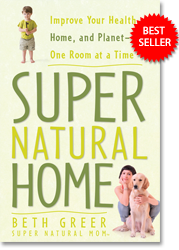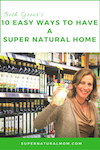Every cup of coffee you sip has a story to tell. Its origin has an impact on our environment as well as the health of the people who grow it and drink it. Below are a few facts that might have you thinking twice before you order your next latte or double espresso.Coffee is one of the most chemically treated food crops on the planet. It is heavily sprayed with pesticides and grown with chemical fertilizers, herbicides and fungicides, all known to cause health problems, including cancer and nervous system and reproductive disorders. In fact, most coffee is imported from countries that use chemicals that are banned in this country.
Coffee is an $18 billion industry — the most traded commodity in the world, second to oil. Americans drink more coffee than any other nation (350 million cups a day), with the average adult drinking more than 10 pounds a year. This demand is altering the way commercial coffee is grown. Traditionally coffee was grown in the shade of tropical forest canopies. These “shade-grown” coffee plantations provided habitat for over 150 species of birds and other wildlife. Over the past 20 years however, there has been a shift by the major coffee companies (including Starbucks) to clear the forests and grow coffee in full sun, with no shade canopy at all. Four out of ten coffee fields in Mexico, Columbia, Central America, and the Caribbean have been converted from shaded plantations to sun-grown “technified” plantations in the last decade. This has had a negative impact on the environment and wildlife. Studies in Colombia and Mexico found 90 percent fewer bird species in sun grown coffee than in shade grown coffee regions. When the habitats of birds are removed, there are more pests which then increase the need for pesticides.
Coffee farmers are negatively affected as well. Gourmet coffee that sells for $8-$9 a pound in the U.S., gives coffee farmers just 11-12 cents a pound. And according to a recent report, in Kenya for example, coffee harvesting is almost exclusively the domain of women and their children, while male workers spray coffee treeswith toxic pesticides between 6 and 11 hours a day. Organic farmers who grow coffee on small, shaded, wildlife-friendly and pesticide-free land often can’t compete in the marketplace, and their businesses often fail. They then become unable to pay for food, clothing, their children’s education and health care. That’s why eco-conscious companies are making a “fair trade” commitment to support smaller growers. But while Starbucks, the largest coffee distributor in the world, has slowly bought more Fair Trade coffee, it represents only about 3.7% of their total coffee purchases.
While most of us care about the world’s disappearing forests, there is one very practical action we can take to do something to protect them. Look for “Shade Grown” on the label; it uses significantly fewer chemicals than sun coffee, and shade trees provide natural mulch, which reduces the need for chemical fertilizers. Choose “Organic,” which is grown using methods that have a low impact on the environment without toxic pesticides and fertilizers.
Most organic coffee is shade-grown. Or buy “Certified Fair Trade” which means that farmers are guaranteed a minimum price for their coffee. Brands like Café Canopy, Java Journey, and Thanksgiving Coffee have all three on their labels.You can usually find these types of coffee at Whole Foods, The Good Earth, Safeway, Albertson’s, Trader Joe’s, and local coffee houses. If they don’t have it, request that they start selling it.
Spread the word. Ask your work place to get organic, made-in-the-shade coffee, and help them find out where to get it. Consider introducing this coffee to your friends at your next party or gathering and to your children’s school. Donate to Coffee Kids, an independent non-profit organization in Providence, Rhode Island, that works to improve the quality of life for children and families living in coffee-growing communities around the world. Be sure and let Starbucks know you’d like them to start serving shade grown coffee, either by communicating online or with their postage paid comment cards available at their stores.
What else should you know about what’s in your cuppa coffee? Starbucks serves milk from cows that are injected with genetically engineered recombinant bovine growth hormone, known as rBGH orrBST. Virtually every industrial country, except for the U.S., has banned the sale of rBGH milk because it poses serious dangers to human health. If Starbucks, a major buyer of milk, were to reject rBGH dairy products, it could effectively be eliminated from the American market. Due to recent consumer pressure, the coffee giant announced on Jan. 17, 2007 that it decided to make 37 percent of its dairy products rBGH-free in a number of its stores in Oregon, Washington, Alaska, Montana, New Mexico, Northern California and New England.
Also, the Nestlé Corporation (Nescafe and Taster’s Choice), the world’s largest food manufacturer with over $65 billion in annual sales, has successfully secured a patent on genetically modified coffee. In many countries, renowned scientists, medical trade organizations and government officials are reporting both known and potential health hazards from genetically-manipulated food and the British Medical Association (BMA) has called for a ban on it. Nestle promotes genetically engineered foods while claiming “the Fair Trade approach is not a solution.”
Knowing what’s in your coffee and where it came from is a good place to start. Buying organic, fair trade and shade grown coffee costs a little more, but what you’re paying for is a better tasting, healthier brew…as well as peace of mind.


